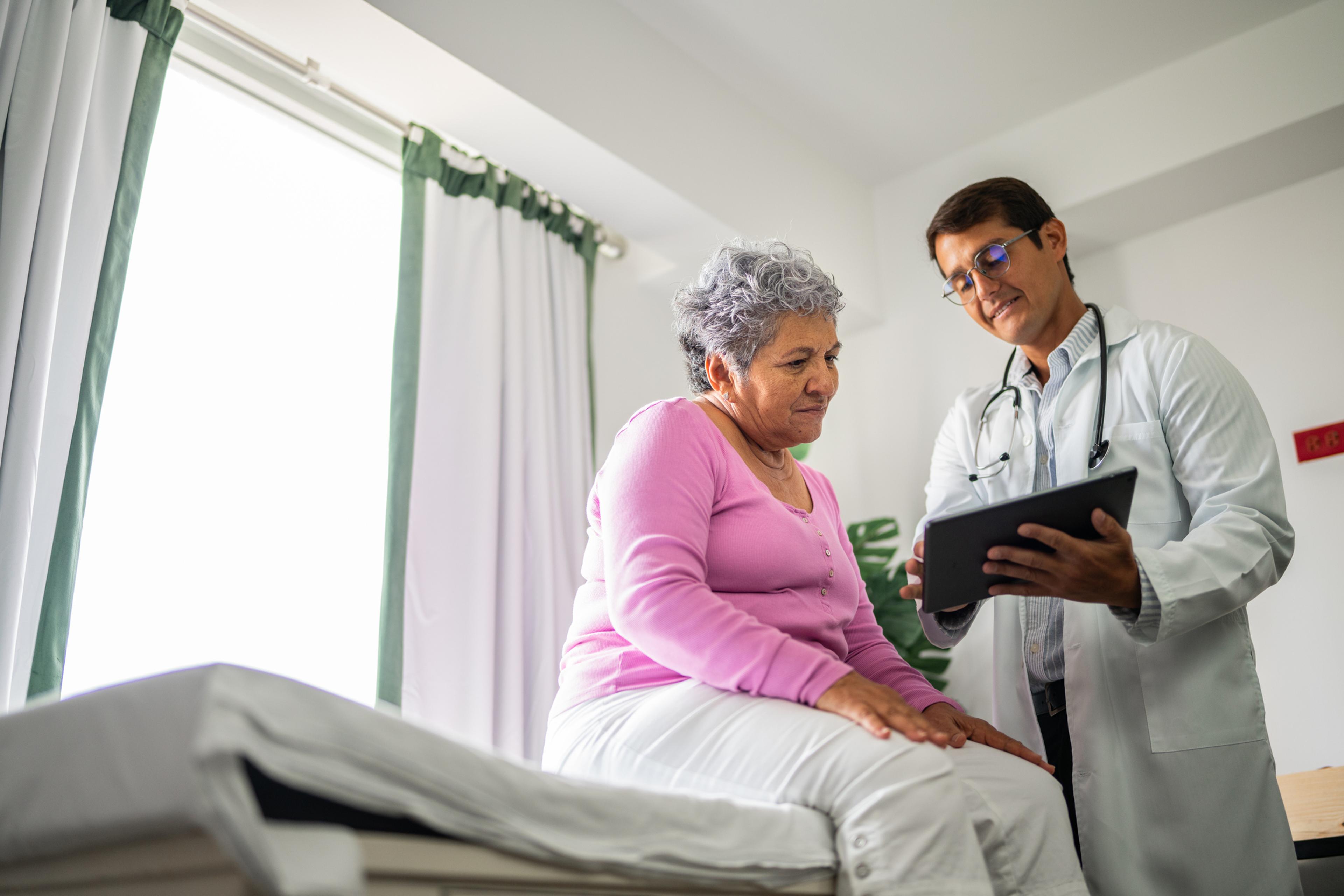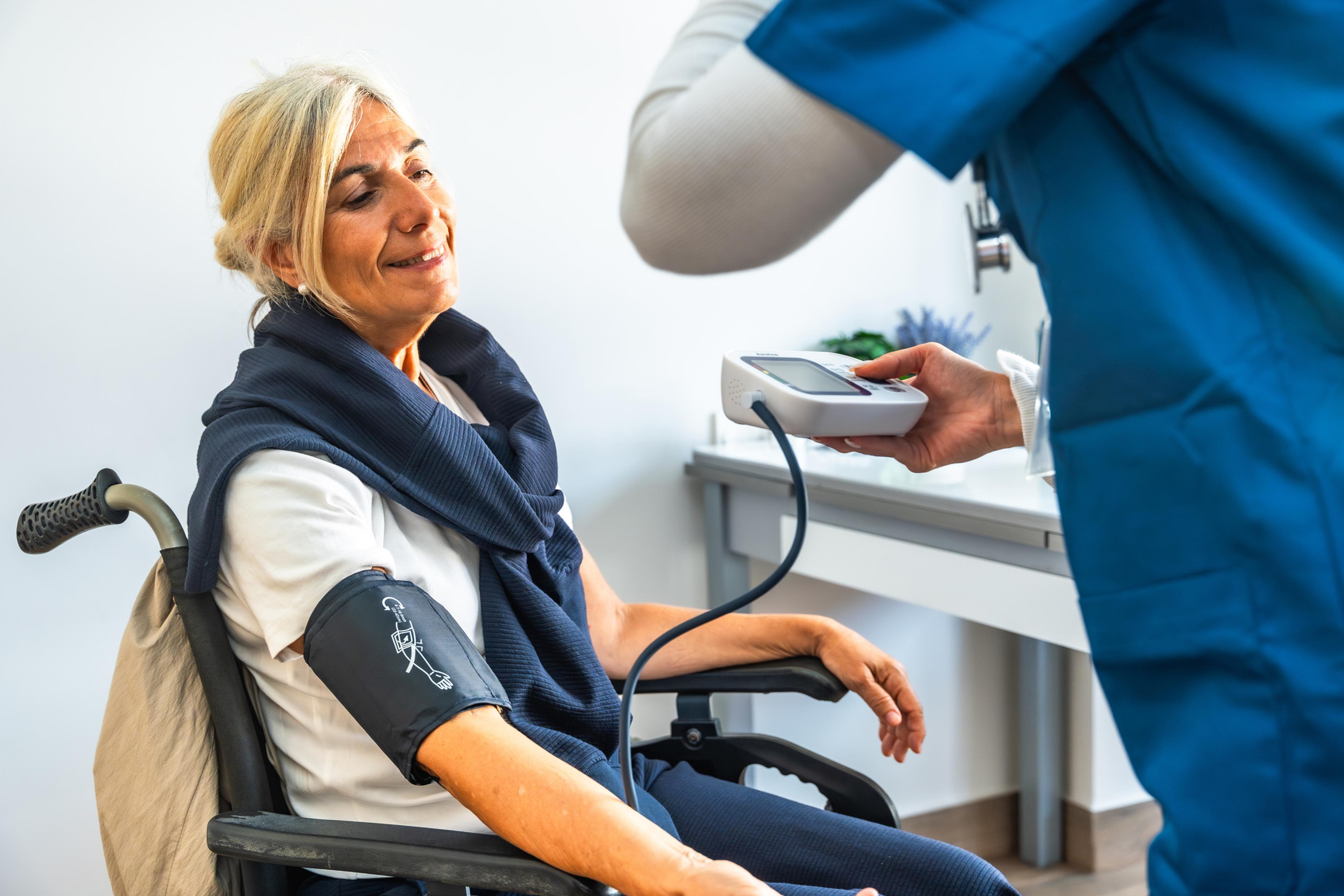Health Screenings You Need in Your 20s
Jake Newby
| 4 min read

Many of us feel invincible in our 20s. But even if you look and feel good, you shouldn’t avoid certain health screenings as a young adult. Age-appropriate screenings help monitor your health and may uncover potential issues earlier before they become serious. With that in mind, here is a partial list of standard health screenings that everyone in their 20s should schedule.
If you're a Blue Cross Blue Shield of Michigan (BCBSM) member, the top five screenings on this list qualify as standard appointments that are free to insured patients. For more information, check out this list of federally mandated preventive services that do not cost a copayment or coinsurance, whether you've met your yearly deductible or not.
Annual preventive visit
As a young adult, you undoubtedly have a lot on your mind. But you can set yourself up for a healthier future by choosing a primary care provider early on. Building a relationship and establishing trust with a primary care provider will help to stay on top of important health screenings throughout your life.
Preventive visits, sometimes referred as a routine or wellness visits, are recommended to assess your overall health, prevent illness and detect underlying health conditions early on. During these visits, you can expect to discuss recommended health screenings, vaccinations, and to have a discussion about healthy lifestyle choices.
Infectious disease screening
Screenings for infectious diseases, including sexually transmitted infections like HIV, are recommended based on risk factors. Some official recommendations from the U.S. Preventive Services Task Force (USPSTF) and the U.S. Centers for Disease Control and Prevention (CDC) include:
- Sexually active women aged 24 and younger should be screened for chlamydia and gonorrhea. Women who are 25 and older who are at increased risk
–should be screened, as well. - Screening for syphilis infection in persons who are at increased risk for infection.
- Adolescents and adults between age 15-65 should be screened for HIV infection.
- Adolescents and adults who are at increased risk should be screened for Hepatitis B virus infection.
- Hepatitis C Virus screening for adults aged 18 to 79 years.
Cancer screening
Cervical cancer screening should start with a cervical cytology test, or pap smear, at age 21, then every three years until age 29. Recommendations for screening with cervical cytology, and/or high-risk human papillomavirus testing begins at age 30.
Mental health screening
USPSTF recommends screening adults for anxiety, depression, and suicide risk, including pregnant and postpartum persons.
Blood pressure screening
USPSTF recommends screening adults, 18 – 39 years of age for high blood pressure every 3 to 5 years who are not at increased risk and have had a normal previous blood pressure reading. If you have increased risk including previously elevated blood pressure or having overweight or obesity, screening for blood pressure is recommended annually.
More than 100 million American adults have high blood pressure, according to the Food and Drug Administration.
Other recommendations
Additionally, you don't want to forget about these important health recommendations. Dental and vision insurance aren't covered by standard individual or family insurance health care plans, so coverage varies. BCBSM members should consult their plan and navigate the Find a Doctor tool for more info.
- Cholesterol screening
- The American College of Cardiology and the American Heart Association (AHA) recommend that cholesterol blood tests begin once you turn 20, to help safeguard against heart disease. After that, if results from the initial screening are normal, plan on scheduling a screening once every five years. People at higher risk, including those on certain medications or those with obesity or diabetes, may require earlier or more frequent screenings.
- Dental exam
- Nearly 90% of adults over the age of 20 have tooth decay, according to the National Institute of Dental and Craniofacial Research, making it vital to have regular dental exams and cleanings at a young age. Professional cleanings can remove plaque and tartar that cannot be removed with brushing and flossing alone. The American Dental Association recommends that most healthy adults with no dental problems should schedule a dental exam and cleaning every 6 months.
- Eye exam
- If you are someone who does not require eyeglasses or contact lenses, eye exams should not be the highest priority on this list – but you should still prioritize them as a preventive measure. For individuals who have good vision and no other eye problems, the American Academy of Ophthalmology recommends a baseline eye exam once between age 20–29.
Informed medical decision making
This blog post highlights some of the routine health screenings for adults in this age range. There may be additional recommendations based on individual risk factors including family history and lifestyle. It is important for you to be informed about recommended health screenings, understand the benefits of early detection, risks involved if you decide not to receive recommended screenings, and potential benefits and risks of treatment. We recommend that you have a conversation with your provider that incorporates your goals and values as you make decisions regarding your health care.
Continue reading:
Photo credit: Getty Images





